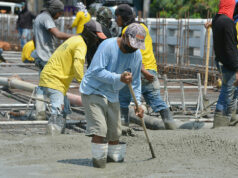Wirecard’s $2.1B did not enter PHL — BSP
THE $2.1 billion missing from German payment company Wirecard AG did not enter the country’s financial system, Bangko Sentral ng Pilipinas (BSP) Governor Benjamin E. Diokno said on Sunday.
“None of the missing $2.1 billion of German firm Wirecard entered the Philippine financial system,” Mr. Diokno said in a text message.
Wirecard’s share price nosedived last week after it was reported that about 1.9 billion euros ($2.1 billion) of its funds had gone missing. Chief Executive Markus Braun, who blamed the company’s problems on fraud, quit on Friday.
While Wirecard did not mention where the missing money allegedly went, BDO Unibank, Inc. (BDO) and Bank of the Philippine Islands (BPI) on Friday issued separate statements denying any business relationship with the German company.
Mr. Diokno said BDO and BPI did not suffer any losses, but the central bank is conducting its own investigation into the matter.
“The initial report is that no money entered the Philippines and that there is no loss to both banks,” he said. “The international financial scandal used the names of two of the country’s biggest banks — BDO and BPI in an attempt to cover the perpetrators’ track.”
BPI and BDO said they had informed Ernst and Young, which serves as external auditor for Wirecard, that bank documents pertaining to the presence of the funds were “spurious.”
BPI, however, told Reuters on Saturday it had suspended an assistant manager whose signature appeared on one of the fraudulent documents.
BDO also told the central bank that it appeared one of its marketing officers had fabricated a bank certificate.
Mr. Diokno reiterated the Philippine banking system was in a strong position going into the coronavirus pandemic and well-capitalized.
DOUBT LINGERS?
Economists said BSP’s latest statement will come as a relief to Philippine banks and investors, although some doubts may linger.
“With the latest clarifications from the BSP that none of Wirecard’s missing funds entered the Philippine financial system, this issue would have minimal impact in terms of international investor sentiment on the Philippines,” Rizal Commercial Banking Corp. Chief Economist Michael L. Ricafort said.
While the issue is unlikely to affect market sentiment, Ateneo de Manila University economist Alvin P. Ang said it is “alarming that the Philippine banks are targeted.”
For his part, Colegio de San Juan de Letran Graduate School Dean Emmanuel J. Lopez said a “cloud of doubt lingers in the mind of the business community” despite statements from the local lenders that they do not have business relationships with Wirecard.
“The integrity of the financial system has once again been put to test. This sends a strong signal to the Legislature that safety measures must be in place to put the integrity of the financial system in place,” he said.
The Philippines is facing the possibility of being included in a “gray list” of economies with lax laws on anti-money laundering and counter-terrorism financing, if it fails to amend existing laws.
The Financial Action Task Force (FATF) had placed the Philippines under a 12-month observation period, originally scheduled to end in October but was extended to February 2021. During this time, the Philippines has to address the gaps identified in the Republic Act No. 9372 or the Human Security Act of 2007 and the Anti-Money Laundering Act of 2001 (AMLA).
The proposed Anti-Terror Act, which amends the Human Security Act, is currently awaiting President Rodrigo R. Duterte’s signature.
Proposed amendments to AMLA, which are also relevant to the FATF assessment, have yet to advance beyond the committee level at both the House of Representatives and the Senate. — Luz Wendy T. Noble with Reuters



